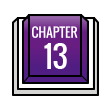
SLOT MACHINES ETIQUETTES
Casino visits aren’t just about winning or losing; they’re also about having a good time.
That’s especially true on slots, where losing sessions greatly outnumber winners and it’s the entertainment value that keeps us coming back between big wins.
Other players also are there to have a good time. Sometimes the interests of players conflict. That’s when we need to follow a few rules of etiquette to make sure your good time doesn’t interfere with mine, mine doesn’t interfere with yours, and neither of us interferes with casino employees’ right to do their jobs without abuse. In this chapter, you’ll find a few rules of etiquette. Most apply mainly to live casinos where there is more customer interaction, but there a couple for online casinos, too.
PLAYING MULTIPLE MACHINES
When crowds are sparse, there is nothing wrong with playing more than one machine at a time.
However, at busy times when playing space is at a premium, limit yourself to one game. Many casinos even have signs asking you to limit yourself to one machine in busy times. Playing multiple machines is more common on three-reel games than on multiline video slots. I once watched in fascination as a woman played an entire row of six machines, hitting the max bet button on one game after another without stopping to see the results.
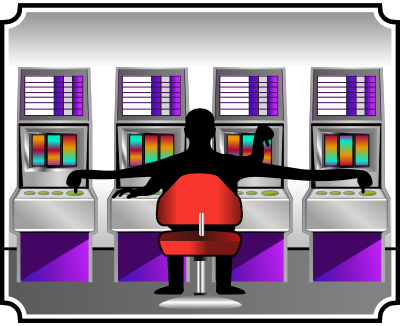
She’d find out whether she won when she got back to the machine a few seconds later. Even on video slots, some players position themselves to hit the button on a second machine while the first is still spinning.
That’s fine, as long as space is available and you’re not keeping someone else from playing. When there’s a wait for games, stick with one machine and give others a chance.
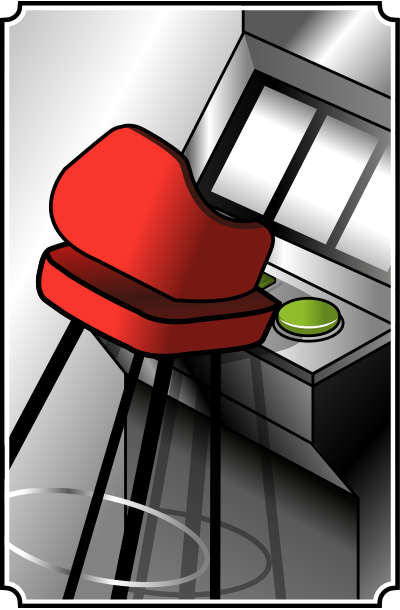
SEATS ARE FOR PLAYERS
Slot machines generally have one seat at each game. If you take that seat and don’t play, you’re taking that game out of commission. That both denies others the opportunity to play, and interferes with the casino’s opportunity to make money. A game not played generates no revenue. That said, sometimes you just need to take a load off your feet. If the casino’s not busy, no one will quibble over a short break at an empty machine. For a longer break, though, you should head to a lounge, snack bar or some other area with seating for non-players. Similarly, when one person in a couple or group is playing and others are watching, it’s bad form to scoot chairs over from other machines for the watchers. Others who want to play the games shouldn’t have to stand, or ask a watcher to give up the seat. If you’re watching rather than playing, stand. Seats are for players.
SIGNAL YOUR BREAKS
Taking care of basic needs is important. Players are going to take toilet breaks, and in casinos with self-serve beverage dispensers, some will break to get a drink. If you expect to come back and play the same game after the break, you need to leave a sign that you’re coming back, lest someone take your seat while you’re gone. For many years, the most common signal that a game was in use was a coin cup atop the screen on a slant-top machine, or over the handle on an upright game.
Now that payoffs are in tickets rather than coins, few casinos have coin cups. Other methods are needed. Some slot manufacturers build a “waiting” mode into the machines that will deactivate the game and signal that it being saved. Time periods such as a 20-minute maximum are specified. However, the wait mode is not popular among U.S. casino operators, and they do not activate the feature on games that have it. One widely accepted signal is to tip the chair forward so the back rests on the machine. That tells other players the game is occupied.
Another way to do it is to leave a drink or inexpensive personal item such as cigarettes or a players club card on the screen. If there are other players at the bank of machines, it is OK to ask another to watch your game while you’re gone. However, you need to understand that if the other player hits a cold steak and runs out of credits, or needs to leave for any reason, he or she is not obligated to stay and watch your machine. Do not leave anything of real value at the machine. If you leave a purse, wallet, coat or full shopping bag at the game, you’re might come back to find yourself without a purse, wallet, coat or shopping bag. Do not leave credits on the machine unless you have someone you know watching it for you. With ticket pays, a thief can cash out and be away with your credits in seconds.
PLAYERS CLUB CARDS LEFT IN MACHINES
If you leave your players club card in the machine’s reader, do not expect others do read that as a signal you’re still playing. Players club cards are left behind all the time by forgetful players. If you meant to come back and left a card as the only signal, don’t be surprised if another player is at you game when you return. The other player in that situation has done nothing wrong. You can ask the other player if you can have the game back, but he or she can refuse. If you’re in the opposite situation, and there is someone else’s players card in a game you are about to play, it is OK for you to go ahead. Take the other player’s card out of the reader and place it on top of the machine so they can collect it quickly if they remember where they left the card and come back for it.
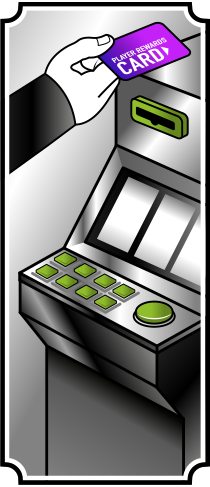
KEEP BREAKS SHORT
Holding the machine while you take care of personal needs is fine for 10 or 15 minutes. It is not fine if you want an hourlong lunch break or need to make a business call that will take a half hour or more. If you’re not playing, the game is best used to give others another playing option.
SMOKING AT THE SLOTS
If smoking is permitted at the casino where you play, then there is no problem with puffing at the games. Nevertheless, a little courtesy toward others is called for. All of these etiquette tips are things most smokers do as a matter of course. However, there are enough transgressions every day to trigger customer complaints and sometimes confrontations. Don’t blow smoke in the face of another player. Exhale away from others. Keep your ashtray on your own machine. Other players don’t want you reaching toward their game to flick your ashes. Use the ashtray. Finding ashes in a game tray or on the button panel is a serious turnoff to other players. Do not smoke in designated no-smoking areas.
In casinos that permit smoking but set aside areas for non-smokers, there are far more gaming options in the smoking areas than in the non-smoking rooms. Give the non-smokers the break they’re looking for and don’t light up in their designated area. Do not smoke in non-smoking casinos. In some jurisdictions, that’s not just casino policy, it’s the law. The U.S. State of Illinois, for one, has banned smoking in public places that include casinos. If you smoke in that situation, you not only irritate other customers, you leave yourself open to arrest and fine.
TIPPING
Slot players don’t interact with dealers on every play, as table games players do. There are far fewer situations in which tipping casino personnel is common behavior. On slots, the main tipping situation comes with hand-paid jackpots. Most slot machine payoffs just add credits to the meter. However, large jackpots are paid by a slot attendant or supervisor, sometimes accompanied by a security guard. Tips always are optional. You do not have to tip those who pay you. Nonetheless, most players tip after large hand pays.
How much is open to question.
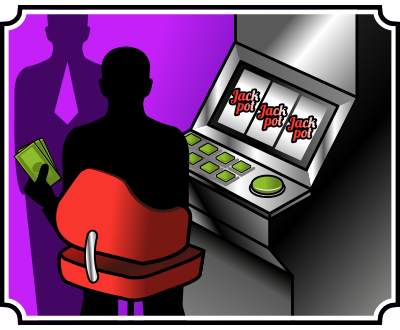
One common amount is $20 on a $1,000 jackpot. The first time I ever had a $1,000 win, I was paid with nine $100 bills and five $20 bills. Clearly, the attendant was hoping one of those $20 bills would come her way. But you don’t have to tip $20 per $1,000. I know players who tip $5 or $10 per $1,000, and the tips have always been accepted graciously by the slot attendant.
There also is decision to make when you’re being paid by multiple people. If I’m being paid by a slot attendant and a security guard, I ask the guard if he’s allowed to accept tips – some casinos permit tips to guards and some do not. If he can accept, then I’ll split the amount of my intended tip between the attendant and guard. Occasionally, especially on very large jackpots, there will be three people in on the payoff, with an attendant, guard and a slot manager or executive. Managers and executives often are not allowed to accept tips. If you’re of a mind to offer, ask if they’re allowed to accept. I usually do not tip execs, who are better paid than attendants and who are not reliant on tips to make a living. In the end, it’s up to you. It’s your money, and you can decide how much to spend on those who are providing you with a service.
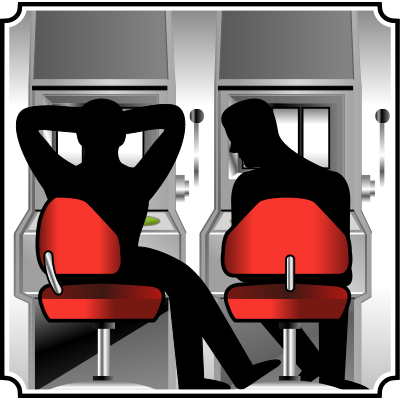
INTERACTIONS WITH OTHER PLAYERS
Keep it friendly, as best you can. Disputes between players are a lot more common on tables than on slots.
Slot players don’t have strategy to argue over and they can’t really accuse another player of ruining their shot to win. Disputes come mainly over personal space (“Could you please keep your legs under your own machine?”), spilled drinks and the occasional jostle when someone is not-so-carefully hustling past. When the bumps, spills and encroachments happen, polite, profanity-free requests and apologies usually will keep things on an even keel. On rare occasions, disputes will arise that players just can’t – or won’t – sort out for themselves. I once witnessed a scene where a man stood at a slot chair, hand on back, as he reached into his pocket for his wallet. He clearly was getting out cash to play the game, but another player darted in and sat down before him. The first player immediately said, “Hey, did you not see I was holding this seat?” The second shot back,”What I saw was an open seat and I took it.” The incident degenerated from there, with shouting and name-calling on both sides. A slot attendant stepped in and told the first player, “Sir, we have the same game right over there? Can I show you?” She led the player away and defused the situation. Most of the time, a little common courtesy works best, but sometimes a casino employee will be needed to resolve a dispute.
INTERACTIONS WITH CASINO EMPLOYEES
As with other players, polite and friendly works best with casino employees. Whether you’re being paid by hand, signing up for a players club card or requesting a comp, you’re receiving a service. Workers who provide services tend to do so more eagerly when treated with respect. I once saw a player who already had been served a couple of drinks by the same waitress shout, “Hey, waitress! Over here!” A slot attendant clued him in. “Her name is Jill.” Casino personnel wear name tags, and it helps humanize your requests if you call them by name. There may be times that you’re having a problem with a game that didn’t pay when you thought it should, or by a players club meter that you think isn’t tracking your points properly. By all means, ask a slot attendant to look into the issue. Every casino trains its employees to deal with any problem. But if the attendant tells you there is nothing they can do, don’t scream at the attendant. If the attendant can’t provide a satisfactory explanation, then it’s OK to ask to see a supervisor. But screaming at the attendant accomplishes nothing but creating a little ill well. Polite, respectful requests usually bring the most favorable attention.
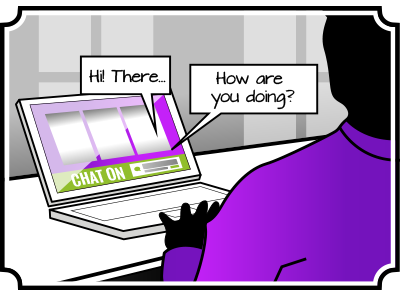
ETIQUETTE ONLINE
When you’re playing online slots, interactions with others are few and far between. For the most part, it’s just you, your computer or mobile device, and the game. Some online casinos provide chat activities, so you can converse with others as you play. These are more common on table games, including poker, and are especially popular in online bingo rooms. If you find a chat function while playing online slots, the same basic rule for interacting with others applies as in live casinos: Be polite, friendly and respectful. One problem specific to online play sometimes arises: Do not use the chat function to promote outside products, particularly other online casinos.
The online casino that is hosting your play has a right to expect it to be free of attempts to drive business to competing casinos. Reserve the chat function for friendly messages about the games and casino stories.

- Respect for others is the key ingredient in slot machine etiquette.
- Do not take extra machines or chairs for non-players during busy times.
- If you intend to return to a game after a break, leave a signal that you’re coming back and keep breaks short.
![]()
TEST YOURSELF
- Playing multiple machines is: A. OK when the casino is not busy. B. Always OK. C. Never OK.
- What are some ways to signal that you’re taking a short break but will be returning to the same game?
- What should you do if you find someone else’s player’s club card in a game you are about to play?
- True or false: It is widely accepted that you should tip slot attendants 10 percent of any large jackpot.
- What is one important thing to avoid in chat areas of online casinos?
Answers
- Playing multiple machines is: A. OK when the casino is not busy. In fact, many casinos have signs asking players to refrain from playing multiple machines during busy times
- Some ways to signal that you’re taking a short break but will be returning to the same game include tipping the chair so it rests on the machine, leaving a drink or inexpensive personal item on the game screen, and asking other players to hold your game.
- If you find someone else’s player’s club card in a game you are about to play, you should remove the card and leave it on top of the machine so it can be picked up easily if the other player returns.
- False: It is not widely accepted that you should tip slot attendants 10 percent of any large jackpot. Tips are entirely up to you, and most players tip much less than 10 percent.
- One important thing to avoid in chat areas of online casinos is promoting outside products, especially competing casinos.
Written by John Grochowski
![]()




